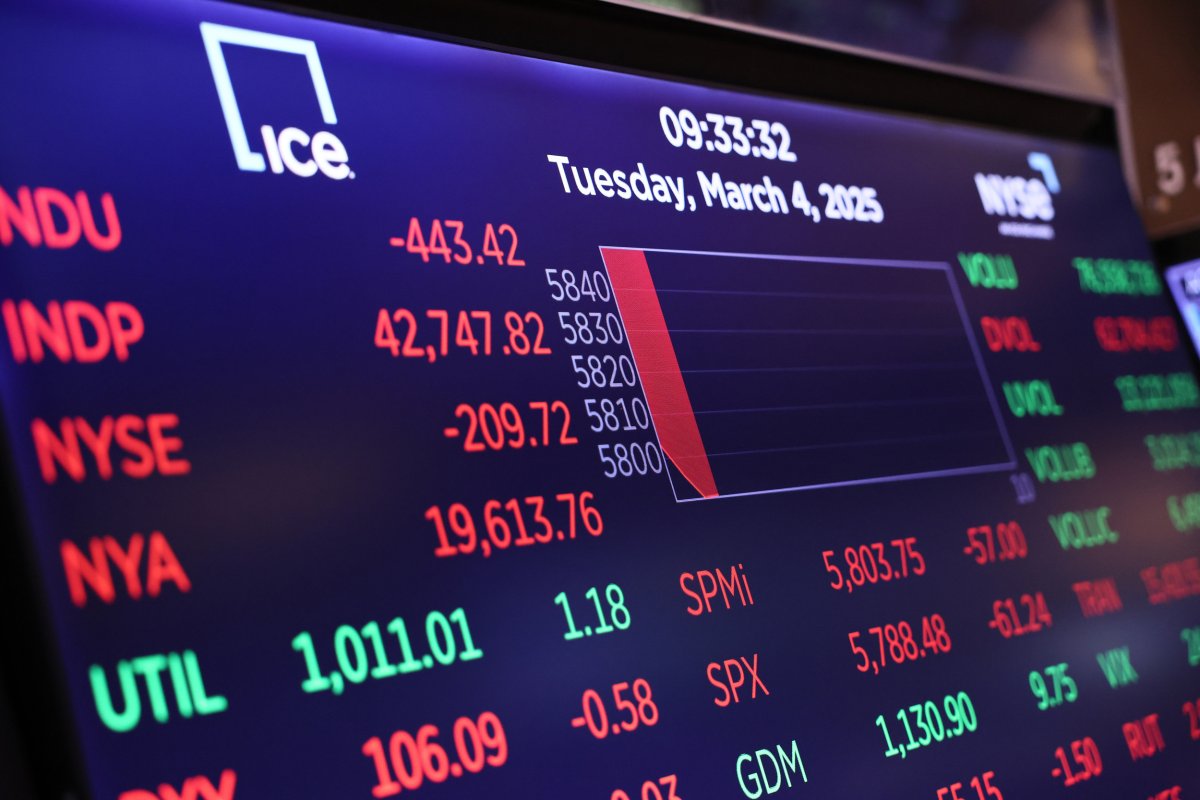President Trump's recent implementation of tariffs has resulted in a significant downturn in global stock markets, marking the steepest decline for U.S. stocks since 2020. Major indices such as the FTSE 100 and Nikkei experienced substantial losses, with the former dropping by 1.5% and the latter nearly 3% . This shift in trade policy is perceived as a "highly mechanical" response to ongoing trade deficits, raising concerns among financial experts about its potential repercussions on the U.S. economy . As investors react to these developments, safe-haven assets like gold have surged to record highs.
Stock indexes have been posting records recently -- but not the kind of records investors like. The S&P 500 on Friday delivered its worst performance since the start of the pandemic back in 2020. And both the S&P 500 (^GSPC -0.23%) and the Nasdaq (^IXIC 0.10%) on March 31 completed their worst quarter since 2022. The Nasdaq even slipped into a bear market last week, represented by declines of at least 20% from its most recent high. Considering all of this, it's fair to say the market has crashed.
The reason for the turmoil? President Trump's tariffs on imports. Investors and analysts worry these duties will weigh on corporate and economic growth at home -- especially after the president broadened his initial tariff plan to include more countries and deeper levels of taxation. Now, the question is: After this market crash, what happens next? History offers us a strikingly clear answer.
Investors fear things could get worse. Other countries, including China, are already installing retaliatory tariffs — a sign that Trump’s move may have been the opening salvo in a trade war that could significantly slow the global economy. On the home front, concerns persist that the sweeping tariffs could reignite inflation and put U.S. consumers in a crunch.
Plus, market historians say U.S. tariff levels are now set to exceed those of the Smoot-Hawley Tariff Act of 1930, an economic policy often cited by economists as a contributing factor to the Great Depression.
The stock market's reaction has been severe; approximately $4 trillion was wiped from the S&P 500's peak value following Trump's tariff announcements . The S&P 500 recorded a notable daily drop of 2.7%, reflecting growing investor unease regarding the administration’s inconsistent tariff policies . Many companies are now reconsidering their operational strategies due to this uncertainty, which has led firms like Delta Air Lines to reduce their profit forecasts significantly.
Furthermore, financial institutions are increasingly alarmed about the likelihood of an impending recession triggered by these tariffs. Goldman Sachs estimates a rising probability of recession at approximately 45%, while JP Morgan places it even higher at around 60% globally if current tariff plans proceed . Despite some officials downplaying these concerns based on positive job reports, mounting pressure for Trump to reconsider his approach is evident from various sectors including Wall Street and Capitol Hill .
Read more
Framework Discontinues Entry-Level Laptops Due to Taiwan Tariffs. Clem Burke, Blondie drummer, dead at 70Sarah H
Also on site :
- Zero Gravity Lifts off on Documentary Showcase
- Uzbekistan Builds Where the West Withdrew
- Nigeria: Nigerian Grandmother Sacked From Cleaner Job At London University Over 'Misplaced Bracelet'

